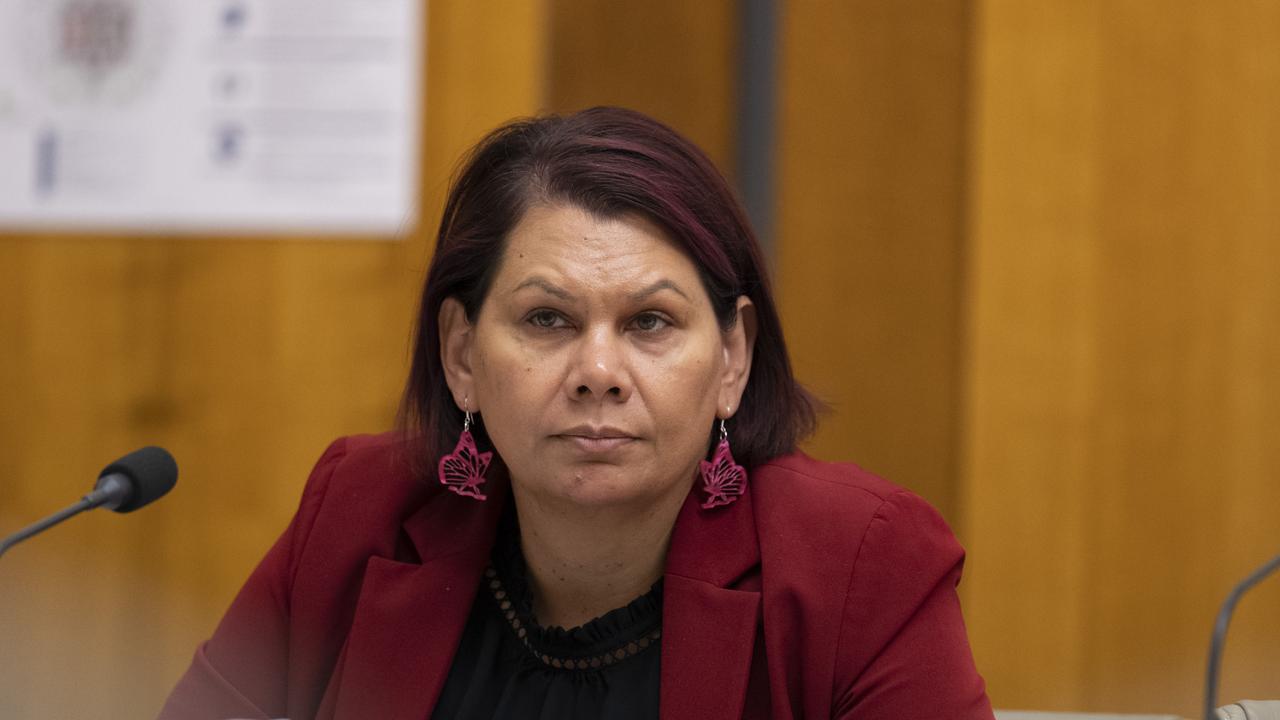Senate inquiry into missing and murdered First Nations women and children hands down report
An almost three-year federal probe has found Indigenous women and children are being murdered at shocking rates, with its harrowing findings finally released.
SA News
Don't miss out on the headlines from SA News. Followed categories will be added to My News.
A landmark federal inquiry into the deaths of Indigenous women and children has shed light on systemic racism and failures within government and policing systems, finding many families have found little — if any — justice.
The almost three-year inquiry probed authorities’ responses to the deaths of First Nations women and children across Australia, hearing harrowing stories of families whose trauma had been worsened by the lack of care towards their loved ones’ deaths.
To date, a severe lack of structured reporting mechanisms and inconsistent data mean there still is no official figure for the number of Indigenous women and children missing and murdered across the country.
But, on average, murder rates for Indigenous women are eight times higher than for their non-Indigenous counterparts. In Western Australia, this number surges to 17.5 times higher.
First Nations women are four times more likely to be hospitalised due to domestic violence than non-Indigenous women, and six times more likely to die of family violence.
“The picture painted by the data is even more scary when we consider that there are inconsistencies in the collection and under reporting, which may be masking just how bad these true statistics really are,” Labor senator Nita Green said.
“Problems like these don’t disappear if we keep them hidden in the shadows, if we don’t talk about this ... then we give permission for those who have inflicted pain on them to do more harm.”

Multiple submissions and witnesses agreed that First Nations women do not trust the police and legal systems due to a history of government policies, legislation and practices that have resulted in “victim-blaming, incarceration and child protection interventions”.
The inquiry received 87 submissions and held public hearings in Victoria, the ACT, the NT, Queensland, NSW and WA — but not in SA — many of whom told of “appalling and shocking” discrimination within police forces and the criminal justice system.
It found these behaviours culminated in “racist, sexist, disrespectful, unprofessional and negligent” responses to Indigenous people’s missing persons reports and homicide investigations.
The Advertiser attended one of the inquiry’s hearings in Sydney, during which many testimonies given echoed the experiences of the loved ones of six Indigenous women whose deaths were investigated for the Dying Rose podcast.
Like those who spoke to the inquiry, the families of Charlene Warrior, Lasonya Dutton, Rose Hunter-Hebberman, Lyla Nettle, Shanarra Bright Campbell and Charli Powell felt their voices had not been heard by the systems supposed to protect them.
When Charli, 17, was found dead in a men’s toilet block by her violent boyfriend, police told him to “go home and have a cup of tea” despite an outstanding warrant for his arrest for unrelated matters. Her mother was left haunted by unanswered questions.
Rose’s mother Courtney Hunter-Hebberman, a Peramangk and Ngarrindjeri woman, was told her daughter had died by suicide – but to this day she has questions about the circumstances.
Following the release of Dying Rose, Ms Hunter-Hebberman said it was crucial for the issue to be brought to light for something to change for Indigenous families.

In its recommendations, the inquiry has urged the Police Ministers Council to review existing police practices toward First Nations people in each jurisdiction by the end of 2025.
This includes mandatory cultural awareness training, trauma-informed practice, recruitment of Indigenous people to senior management positions and stronger guidelines for review of past cases.
It also called for national recognition of First Nations women and children who have been murdered or disappeared, better reporting of data and a federal First Nations representative within the Domestic, Family and Sexual Violence Commission.
But Greens senator and former WA Police officer Dorinda Cox, who spearheaded the inquiry in 2021, was scathing of the report’s recommendations, saying they did not accurately reflect the urgency of the issue.
“This report is about deliberate actions and failures of a system that has at its heart racially and gendered violence,” Ms Cox said.
“People shared with us the most painful experiences of their lives with some hope that something can be done to prevent suffering in the future.
“There must continue to be outrage about this happening in a modern-day country like Australia.”
Ms Cox said the families who bravely spoke to the inquiry were aching to tell their stories — and it was now time for Australia’s authorities to listen.
“It’s our job to stop the suffering and it won’t happen until we get frontline services to care,” she said.
“(We need to) put some real targets in place and get clear data so that we can actually hold people to account.”
More Coverage
Originally published as Senate inquiry into missing and murdered First Nations women and children hands down report






